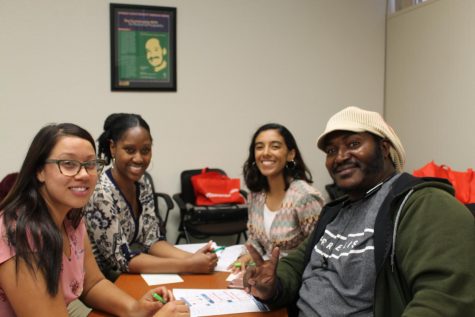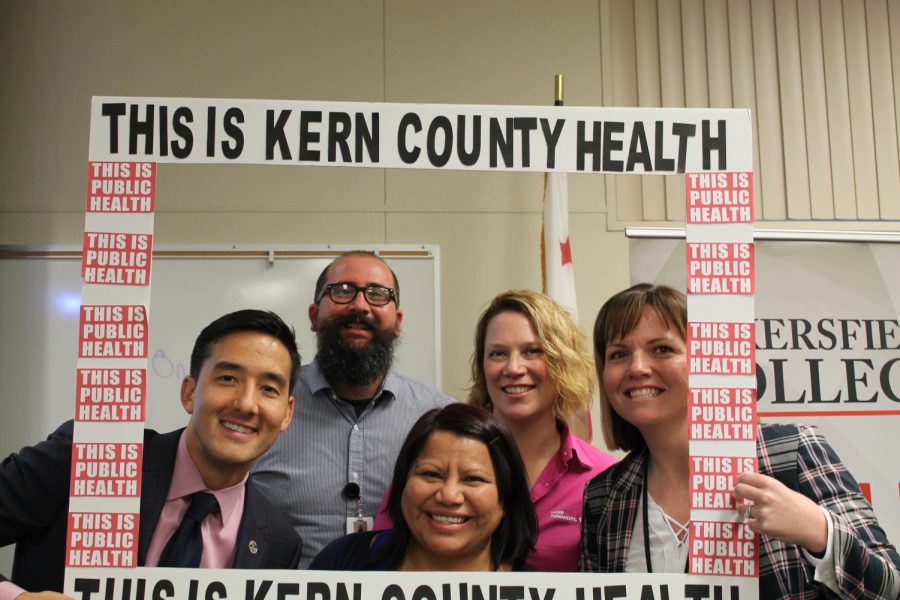Bakersfield College hosts its 3rd Annual Hackathon
The MC for the Hackathon (Tomono), and the panelists. From left to right: Kiyoshi Tomono, Raul Gallardo, Rosa Lopez, Kristin Weber, and Brynn Carrigan.
April 8, 2019
The 3rdAnnual Hackathon for 2019 held its kickoff on April 4 in the Levan Center.
The room was full to capacity and there was an excitement in the air.
The goody bags that were given out to the participants held noise makers, a free t-shirt, and pamphlets that explained the competition and rules.
The kickoff was hosted by former KGET news anchor Kiyoshi Tomono who is now the Associate Vice President of Adventist Health.
Along with Tomono was a panel of leaders from the community.
Each of them presented real world problems in need of solutions within the Bakersfield community today.
One of them was Brynn Carrigan, who works for the Kern County Public Health Department (KCPHD).
Among their numerous duties, Carrigan and her staff are also responsible for the letter grade one might see posted in the window of their favorite restaurant.
The real-life problem Carrigan spoke about were the barriers to healthy living in Kern county.
One barrier is transportation to access healthy eating, and another is unsafe parks in the community for those residents who want to exercise in the park.
“I’m glad that Public Health Services is taking a more innovative approach to overcoming some of the barriers,” Carrigan said to the audience.
Each team was judged on community impact, technology, scope of work, and their pitch.
There were 16 judges from various fields within and outside of Kern County.
At last count there were about 100 students participating in the challenge.
One team who called themselves “Immigrant Public Health” were comprised of five Bakersfield College students with majors in electrical engineering, computer science, and civil engineering.
Anyone who is interested in entering the competition in the future should not be discouraged if they don’t have a lot of technical experience, according to Professor Sarah Baron who produces the Hackathon and teaches social justice at BC.
“Last year’s third place winner was a group of nursing majors who entered the competition with little technology experience,” Baron said.
Eddie Rangel, who teaches information and technology at BC, was on hand to help guide the teams and offer support in the area of technical support.
In addition to Professors Baron and Rangel, Diana Balderas was a mentor.
As a computer science major at BC, she said, “I’m a mentor because I like to help people and I think the idea of using technology to solve real-life problems is awesome.”
Due to time restraints, each team received an imaginary $25,000 budget to create only a prototype to be presented at judging, which took place on April 6.

Hackathon team SJW (Social Justice Warriors).
Left to right: Candice Romero (Nursing Student), Danae Cubit (Nursing Student), Ashley Jimenez (Graduate of UC Irvine, Public Health Services), and Fitzgerald Graves Sr. (Psychology and Communications).





